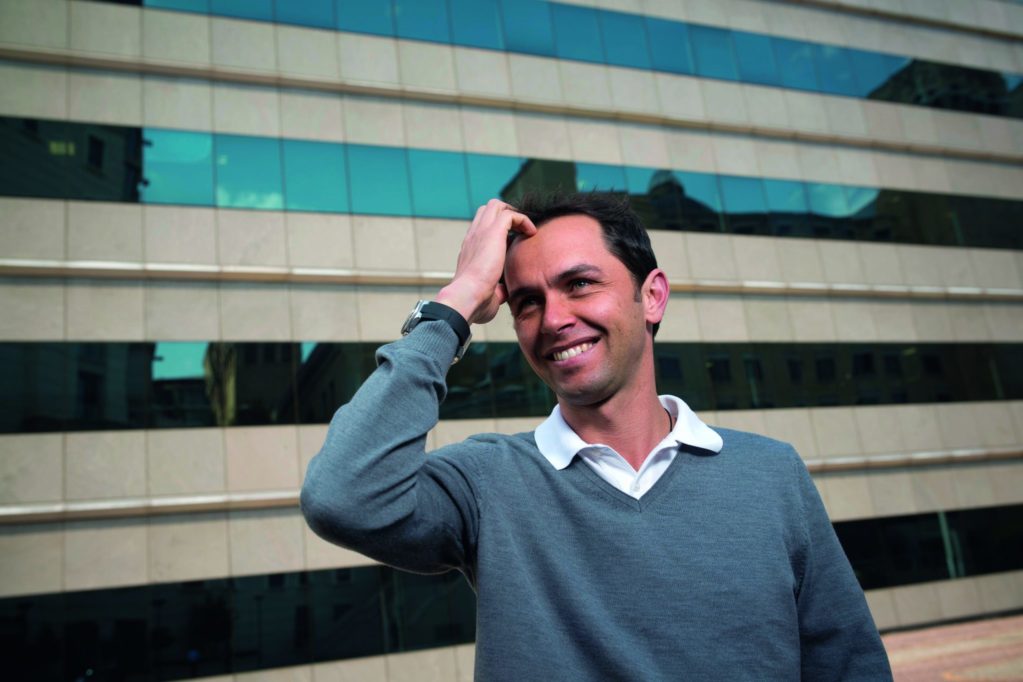It’s one of the cruelest cuts in business. You start a company, it does well, you bring people on board, they let you go and then you disappear from sight. Even the late Steve Jobs was booted from Apple, only to return to bring them greater success. But for Alan Knott-Craig, founder of World of Avatar and the youngest member of the “I got fired from the company I started” group, it was one hurdle in life that he didn’t see coming.
“It was very sad for me… I cried and became paranoid and incredibly embarrassed because it was quite public… Combined with a little bit of time all those wounds have healed and I’ve realized that it’s the best thing that ever happened to me.”

What really hurt was that everywhere he turned were signs of his misfortune, he had to get away. Knott-Craig flew his family to Washington D.C., put them in a gold colored RV and took to the road. They traveled across the United States through West Virginia, Kentucky, Tennessee, Alabama, Florida, Louisiana, Mississippi, California, Texas, Nevada and Arizona. It gave him time to think.
“While America is an amazing place, it reminded me that I’m living in the best place in the whole world. Africa is the place I want to be.”
Jobless and still reeling from his departure from World of Avatar, Knott-Craig returned home and took a solo road trip though the Eastern Cape. He visited Robert Sobukwe’s memorial and Steve Biko’s house, two of South Africa’s struggle heroes. It was here that he found inspiration.
“I started thinking about information and that people make better decisions when they have all the information, it really boils down to that. I thought the way to make the country a better place would be if everyone had access to all the information. I knew how to do that, it was the internet… All it is, is taking existing resources and connecting them. It’s not asking people for new things.”
Knott-Craig wanted to take advantage of the fact that many households in South Africa already have Wi-Fi through cellular devices. He partnered with Ubiquiti Networks, a group that broke off from Motorola after they went bankrupt, that supplied the equipment.
The road trips paid off. Project Isizwe was launched in April and Knott-Craig was back in business. He opened avenues for people to donate money and bandwidth. The government supplied access points and they found a local supplier. For R2 ($0.20) per person they would supply internet.
Of all the problems with finance and getting people on board, Knott-Craig’s biggest challenge was getting people to believe.
“… you don’t have to have an American company do it for you; they don’t have to hold your hand. We have the skills, we have the competence here, we have the infrastructure, we have the money, we’ve got everything. Why on earth do we need an American company to come and save us? We don’t.”
Unlike the case of Jobs and Apple, Knott-Craig has no intentions of going back to World of Avatar.
“This stuff is like girls. You can be really in love with someone and then have a break-up and it can really hurt you, but the worst thing you can do is go back to that. Once you’ve moved on, you’ve moved on… I don’t know how I would go back.”
Despite no office hours or stable income, Knott-Craig is optimistic about the future of Project Isizwe. By the end of the year, he hopes to have the NGO running five sites throughout Tshwane, north-central South Africa, and by the end of 2014 over 200 sites. After that he has set his sights on the whole of Africa but wants to start small.
“I’ve made the mistake of having dreams that are too big… I’ve learnt to under promise and over deliver.”
An epiphany from pain to enlightenment.
